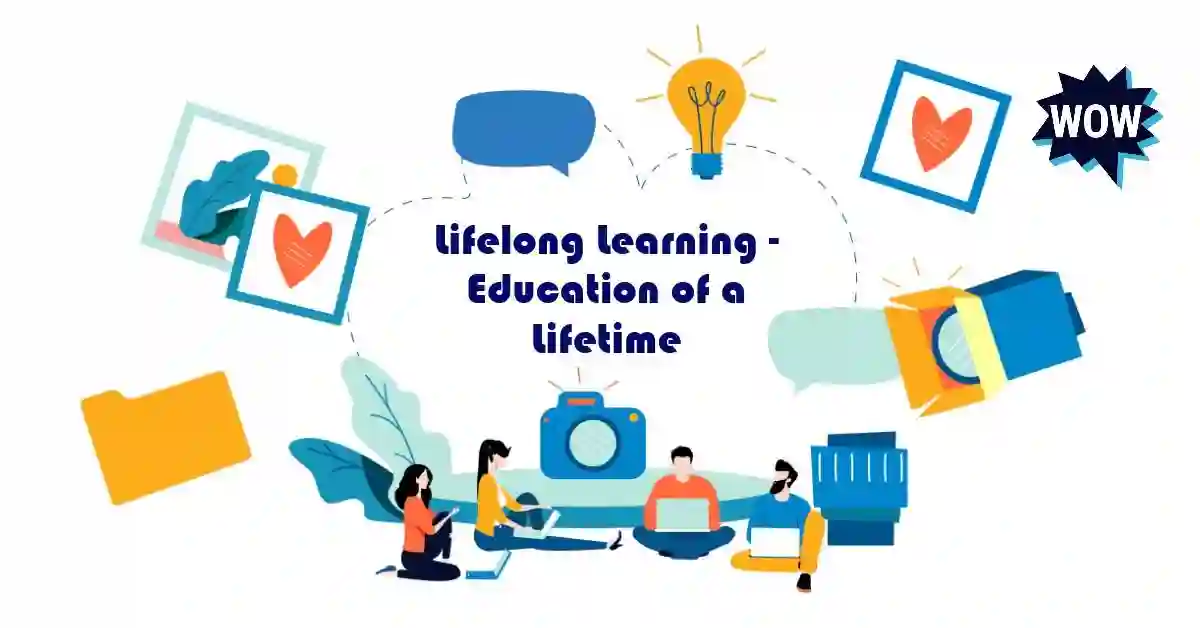Education
QuickCalc Solver: Accelerate Your Math Problem-Solving Skills

In the fast-paced world of mathematics, where time is often a critical factor, the need for quick and accurate problem-solving skills is more pronounced than ever. Introducing the “QuickCalc Solver,” a powerful tool designed to accelerate math problem-solving skills with efficiency and precision. This article explores the features and strategies that make QuickCalc Solver an invaluable companion for students, professionals, and enthusiasts looking to navigate the challenges of mathematics swiftly.
The Need for Speed in Math Problem-Solving:
Mathematics is a discipline where swift problem-solving skills can make a significant difference. Whether in academic settings, professional environments, or daily life, the ability to arrive at accurate solutions quickly is a valuable asset. QuickCalc Solver addresses this need by providing a streamlined approach to math problem-solving, allowing users to accelerate their proficiency.
Features of QuickCalc Solver: Navigating the Math Express Lane:
QuickCalc Solver distinguishes itself through a set of features meticulously crafted to facilitate rapid and accurate math problem-solving. These features include advanced algorithms, real-time functionality, user-friendly interface, and a commitment to maintaining precision even in the face of accelerated calculations.
Advanced Algorithms: Harnessing Computational Power:
At the core of QuickCalc Solver’s capabilities are advanced algorithms that harness the full spectrum of computational power. These algorithms are designed to swiftly process mathematical problems, ensuring that users can obtain solutions with speed and accuracy. The integration of cutting-edge algorithms positions QuickCalc Solver as a dynamic and powerful tool in the realm of math problem-solving.
Real-Time Functionality: Solutions at Your Fingertips:
One of the defining features of QuickCalc Solver is its real-time functionality. Users can input mathematical challenges and receive solutions instantaneously. In a world where efficiency is paramount, the ability to access solutions at your fingertips enhances the overall speed of problem-solving, allowing users to navigate through mathematical complexities without delays.
Versatility Across Mathematical Realms: From Basics to Complex Challenges:
QuickCalc Solver exhibits versatility by seamlessly navigating through a broad spectrum of mathematical realms. From fundamental arithmetic operations to complex calculus problems, the solver adapts to the complexity of each challenge. This versatility positions QuickCalc Solver as a comprehensive tool catering to users with diverse mathematical problem-solving needs.
User-Friendly Interface: Accessibility Redefined:
Despite its computational prowess, QuickCalc Solver maintains a user-friendly interface. Accessibility is a key consideration, and the tool is designed to cater to users across different proficiency levels. The intuitive interface ensures that individuals, regardless of their mathematical background, can effortlessly engage with the solver and obtain quick and accurate solutions.
Precision in Real-Time: Accuracy Amidst Acceleration:
While QuickCalc Solver focuses on speed, it doesn’t compromise on precision. Each solution generated by the solver is meticulously crafted to uphold accuracy and correctness. This commitment to precision ensures that users can rely on QuickCalc Solver for dependable and trustworthy mathematical solutions, even in the fast-paced realm of real-time functionality.
Customization for Individual Preferences: Tailoring the QuickCalc Experience:
QuickCalc Solver recognizes that every user has unique preferences. It offers customization options, allowing users to tailor settings based on their preferred learning style, solution methods, and formatting preferences. Customization ensures that QuickCalc Solver caters to individual needs, providing a personalized and efficient problem-solving experience.
Educational Support and Enrichment: Beyond Solutions to Understanding:
QuickCalc Solver goes beyond being a solution provider; it serves as an educational ally. The tool provides additional insights, explanations, and alternative approaches to mathematical challenges. Users, whether students or professionals, can leverage this support to deepen their understanding of mathematical concepts and enhance their overall proficiency.
Continuous Learning and Adaptability: Navigating the Dynamic Math Landscape:
QuickCalc Solver embodies a philosophy of continuous learning and adaptability. It recognizes that the landscape of mathematical challenges is ever-evolving, with new complexities and nuances emerging regularly. By promoting a mindset of continuous learning and adaptability, QuickCalc Solver ensures that users remain agile and well-equipped to navigate the dynamic world of math problem-solving.
Efficient Time Management: Maximizing Speed and Accuracy:
Efficient time management is a practical consideration, and QuickCalc Solver is designed to maximize speed while optimizing accuracy. The platform ensures that users can focus their efforts on understanding the problem, planning the solution, and reviewing results, rather than spending excessive time on calculations. This strategic time management contributes to overall efficiency in math problem-solving.
Feedback Mechanism for Continuous Improvement: Precision in Progress:
To ensure that QuickCalc Solver remains a dynamic and responsive platform, it incorporates a feedback mechanism. Users can provide input on the effectiveness of solutions, the user interface, and overall learning experience. This feedback loop facilitates continuous improvement, allowing QuickCalc Solver to evolve based on the evolving needs and preferences of its user base.
Conclusion:
QuickCalc Solver emerges as a transformative tool in the realm of math problem-solving, providing swift and accurate solutions to users across different proficiency levels. Its advanced algorithms, real-time functionality, user-friendly interface, and commitment to precision position it as a central hub for accelerated math problem-solving. As users embrace the features of QuickCalc Solver, they unlock a gateway to rapid and accurate mathematical solutions, empowering themselves to navigate the challenges of mathematics with unparalleled speed and efficiency. In a world where time is a precious commodity, QuickCalc Solver stands as the key to unlocking a new era of problem-solving at the speed of thought.
Education
Overcoming Challenges in Online Degree Programs: Tips for Students

The advent of online degree programs has revolutionized the landscape of higher education, offering unprecedented flexibility and accessibility. However, with this convenience comes a unique set of challenges that students must navigate to ensure a successful learning experience. In this article, we will explore common challenges faced by students in online degree programs and provide practical tips on how to overcome them.
Time Management
One of the primary challenges for online students is managing their time effectively. Without the structured schedule of a traditional classroom, it’s easy to procrastinate or become overwhelmed. To overcome this challenge, create a realistic and organized schedule. Set specific study hours, establish deadlines for assignments, and use time management tools or apps to stay on track. Break down larger tasks into smaller, more manageable steps to make your workload more digestible.
Self-Motivation and Discipline
Online learning requires a high level of self-motivation and discipline. Without the physical presence of instructors and classmates, students may struggle to stay focused and motivated. To overcome this challenge, set clear goals for yourself and regularly reassess your progress. Create a dedicated study space that minimizes distractions and establishes a conducive learning environment. Stay connected with peers through online forums or study groups to foster a sense of community and accountability.
Effective Communication Skills
In an online environment, communication is often asynchronous, relying on emails, discussion boards, or virtual meetings. Some students may find it challenging to express themselves clearly through written communication. To overcome this, practice effective written communication by proofreading your messages and assignments. Participate actively in online discussions, ask questions, and seek clarification when needed. Developing strong written communication skills is not only crucial for academic success but also for professional growth in the digital age.
Technological Issues
Technical difficulties can be a significant barrier to online learning. Internet connectivity problems, software glitches, or hardware issues can disrupt your studies and cause frustration. To overcome this challenge, familiarize yourself with the technology required for your courses in advance. Ensure your devices and software are up to date, and have a backup plan for internet outages. Reach out to your institution’s technical support if you encounter issues, and don’t hesitate to seek assistance early to avoid prolonged disruptions.
Isolation and Lack of Social Interaction
Online students may experience a sense of isolation due to the absence of face-to-face interactions with classmates and instructors. Overcoming this challenge involves actively seeking opportunities for social interaction. Participate in virtual discussions, join online study groups, or attend virtual office hours. Many online programs also offer networking events or social forums where students can connect. Building a sense of community through virtual channels can help combat feelings of isolation and enhance the overall online learning experience.
Balancing Work, Family, and Studies
Many online students are juggling multiple responsibilities, including work and family commitments. Balancing these responsibilities can be challenging, but effective time management and communication are key. Clearly communicate your academic commitments to your employer and family members, and establish boundaries to protect your study time. Prioritize tasks based on urgency and importance, and don’t hesitate to seek support from your employer, family, or academic advisors when needed.
Lack of Hands-On Experience
Certain disciplines, such as science or healthcare, may require hands-on experience that is challenging to replicate in an online setting. To overcome this challenge, explore virtual simulations, laboratory kits, or internships in your local area. Some online programs collaborate with institutions to provide practical experiences for remote students. Communicate with your instructors about your concerns, and inquire about alternative options for gaining the hands-on skills required for your field of study.
Overcoming Exam Anxiety
Online exams can evoke anxiety, especially for students who are not accustomed to this mode of assessment. To overcome exam anxiety, practice time management during exams by allocating specific amounts of time to each question. Create a calm and quiet environment for exams, and ensure you have a reliable internet connection. Review the exam format and guidelines in advance, and reach out to your instructors if you have any concerns or questions. Utilize stress-management techniques, such as deep breathing or mindfulness, to help calm nerves before and during exams.
Staying Informed and Engaged
Online students may sometimes feel disconnected from the broader academic community and miss out on important information. Overcome this challenge by actively staying informed and engaged. Regularly check your course announcements, participate in online forums, and communicate with your instructors. Take advantage of virtual events, workshops, or webinars offered by your institution. Engaging with the online learning community can enhance your educational experience and keep you informed about important updates and opportunities.
Seeking Support When Needed
When facing challenges in an online degree program, seeking support is crucial. Institutions typically offer a range of support services, including academic advising, counseling, and technical support. Take advantage of these resources, and don’t hesitate to reach out for help. Join online discussion forums or study groups to connect with peers who may be experiencing similar challenges. Remember that asking for assistance is a sign of strength, and institutions are dedicated to supporting the success of their online students.
Conclusion
While online degree programs offer unprecedented flexibility, students must proactively address the challenges that come with this mode of learning. By developing strong time management skills, fostering self-discipline, improving communication abilities, and seeking support when needed, students can overcome obstacles and thrive in their online academic journey. With the right mindset and a commitment to continuous improvement, online education can be a rewarding and successful path toward achieving educational and career goals.
Education
Education and Resilience: Overcoming Adversity

Life is full of challenges and setbacks, and adversity can strike at any moment. In these trying times, resilience—the ability to bounce back from adversity and continue moving forward—is a crucial quality. Education plays a significant role in building resilience by providing individuals with the knowledge, skills, and mindset to face adversity head-on. In this article, we will explore the connection between education and resilience and how education equips individuals to overcome life’s challenges.
Understanding Resilience
Resilience is not a fixed trait; it is a dynamic quality that can be developed and strengthened over time. It involves the capacity to adapt, recover, and even grow stronger in the face of adversity. Resilient individuals possess emotional strength, problem-solving abilities, and a positive outlook that helps them navigate life’s ups and downs.
Education as a Path to Resilience
Education serves as a powerful tool for fostering resilience in individuals. It equips them with the following attributes and skills that are essential for overcoming adversity:
- Knowledge and Awareness: Education provides individuals with knowledge about various subjects, including the world around them and the challenges they may encounter. This knowledge empowers individuals to make informed decisions and navigate difficult situations.
- Critical Thinking: Education promotes critical thinking skills, which are crucial for analyzing problems, evaluating options, and making sound decisions during adversity. Critical thinking encourages individuals to approach challenges with a solution-oriented mindset.
- Problem-Solving Skills: Education teaches problem-solving skills that enable individuals to identify obstacles, develop strategies, and find creative solutions to overcome adversity. Problem-solving skills are invaluable when facing unexpected challenges.
- Emotional Intelligence: Emotional intelligence is the ability to recognize, understand, and manage one’s emotions and the emotions of others. Education fosters emotional intelligence by promoting self-awareness, empathy, and effective communication—all of which are essential for resilient responses to adversity.
- Growth Mindset: Education encourages a growth mindset, the belief that abilities and intelligence can be developed through effort and perseverance. This mindset helps individuals view challenges as opportunities for growth and learning.
- Coping Mechanisms: Education can teach individuals healthy coping mechanisms, such as stress management, mindfulness, and self-care. These techniques help individuals navigate adversity while maintaining their mental and emotional well-being.
- Resilience Training: Some educational programs and institutions offer resilience training or courses that specifically focus on building resilience skills. These programs provide individuals with tools and strategies to enhance their ability to bounce back from setbacks.
Promoting Resilience through Education
Education is not only about acquiring knowledge; it is also about nurturing the whole person, including their emotional and psychological well-being. Here are ways in which education promotes resilience:
- Supportive Learning Environments: Educational institutions can create supportive and inclusive learning environments that foster emotional well-being and resilience. Teachers and educators play a vital role in creating safe spaces where students can express themselves and seek help when needed.
- Character Education: Many educational programs incorporate character education, which focuses on developing virtues such as perseverance, courage, and resilience. These programs instill values that help students navigate challenges with integrity and determination.
- Mentorship and Guidance: Mentors and counselors in educational settings provide valuable guidance and support to students facing adversity. They offer a listening ear, advice, and strategies for coping with challenges.
- Social and Emotional Learning: Social and emotional learning (SEL) programs are designed to teach students essential life skills, including self-awareness, self-management, social awareness, relationship skills, and responsible decision-making. These skills contribute to emotional resilience.
- Community Engagement: Education often encourages students to engage with their communities and make a positive impact. Community service and volunteerism can foster a sense of purpose and resilience by helping individuals see their ability to make a difference, even in the face of adversity.
Overcoming Educational Challenges
Education itself can be a source of adversity for some individuals, particularly those facing financial barriers, discrimination, or learning disabilities. However, education also offers opportunities for overcoming these challenges:
- Access to Resources: Education provides access to resources and support systems that can help individuals overcome educational challenges. Scholarships, financial aid, and tutoring services are examples of resources available to students.
- Advocacy and Awareness: Education can raise awareness of issues such as learning disabilities, discrimination, and inequality. This awareness can lead to advocacy efforts that promote equity and inclusivity in educational settings.
- Accommodations: Educational institutions can offer accommodations and support for students with learning disabilities or other challenges. These accommodations ensure that all individuals have an equal opportunity to succeed in their educational pursuits.
- Building a Support Network: Education allows individuals to connect with peers who may share similar challenges. Building a support network of friends and mentors can provide emotional and practical support during difficult times.
Conclusion
Education is a powerful catalyst for building resilience in individuals. It equips them with the knowledge, skills, and mindset needed to face adversity, adapt to change, and persevere in the face of challenges. By promoting critical thinking, problem-solving abilities, emotional intelligence, and a growth mindset, education empowers individuals to navigate life’s obstacles with resilience and emerge stronger on the other side.
Educational institutions, educators, and parents all play a vital role in nurturing resilience in individuals. By creating supportive learning environments, offering character education, and providing emotional support, they contribute to the development of resilient individuals who are well-prepared to overcome adversity and thrive in the face of life’s challenges. Education is not just a pathway to knowledge; it is also a pathway to resilience, personal growth, and a brighter future.
Education
Resilience and Life Coaching: Bouncing Back from Adversity

Life is a journey filled with ups and downs, challenges, and triumphs. At times, adversity can feel overwhelming, leaving us feeling helpless and drained. However, resilience, the ability to bounce back from adversity, is a quality that can be cultivated and strengthened with the support of a life coach. In this comprehensive guide, we will explore the concept of resilience, how it impacts our lives, and how life coaching can empower individuals to develop and harness their resilience in the face of adversity.
Understanding Resilience
Resilience is the capacity to adapt, thrive, and maintain mental and emotional well-being in the face of adversity. It’s not about avoiding difficulties or feeling invincible; instead, it’s the ability to recover and grow stronger from life’s challenges. Resilient individuals tend to share certain characteristics:
- Optimism: Resilient people maintain a positive outlook, believing that they can overcome obstacles.
- Problem-Solving Skills: They are adept at identifying and solving problems effectively.
- Emotional Regulation: Resilient individuals can manage their emotions and cope with stress in healthy ways.
- Social Support: They have strong social networks and seek help and support when needed.
- Adaptability: Resilient people are flexible and can adjust their strategies when faced with setbacks.
- Self-Compassion: They are kind and understanding toward themselves, avoiding self-criticism.
The Impact of Resilience
Resilience has a profound impact on various aspects of our lives:
- Mental and Emotional Well-Being: Resilience is closely tied to emotional stability and mental health. It helps individuals bounce back from emotional distress and maintain a positive outlook.
- Physical Health: Resilience has been linked to better physical health outcomes, including reduced risk of chronic illnesses.
- Professional Success: Resilient individuals tend to be more successful in their careers as they can adapt to challenges and setbacks.
- Relationships: Resilience is a key factor in maintaining healthy and fulfilling relationships, as it helps individuals navigate conflicts and difficult times.
- Personal Growth: Resilience fosters personal growth and self-improvement, as individuals learn from their experiences and become more adaptable.
The Role of Life Coaching in Building Resilience
Life coaching is a powerful resource for individuals looking to cultivate and harness their resilience. Life coaches are trained to guide clients in personal development, goal setting, and overall well-being. Here’s how life coaching can help individuals build resilience:
- Identifying and Challenging Limiting Beliefs: Life coaches work with clients to identify and challenge self-limiting beliefs that may hinder resilience. By changing thought patterns, clients can become more adaptable.
- Goal Setting: Life coaches assist clients in setting meaningful goals that align with their values and passions, providing motivation and a sense of purpose.
- Problem-Solving Skills: Life coaches teach problem-solving techniques, helping clients become more effective in addressing challenges.
- Emotional Regulation: Life coaches guide clients in developing emotional intelligence and effective coping mechanisms for managing stress and adversity.
- Building Self-Confidence: Self-confidence is closely tied to resilience. Life coaches help clients build self-esteem and self-assurance.
- Developing Social Support: Resilient individuals often have strong social networks. Life coaches encourage clients to seek support and build connections with others.
- Self-Compassion: Life coaches promote self-compassion, helping clients avoid self-criticism and develop a kinder relationship with themselves.
- Adapting to Change: Life coaches assist clients in embracing change and developing adaptability, a crucial aspect of resilience.
- Stress Management: Life coaches provide techniques and strategies for managing stress and anxiety effectively.
- Celebrating Achievements: Recognizing and celebrating even small achievements can boost self-esteem and resilience. Life coaches encourage clients to acknowledge their progress.
Case Study: Strengthening Resilience through Life Coaching
Let’s explore a real-life scenario where life coaching played a pivotal role in strengthening resilience:
Client Profile: Sarah, a 35-year-old marketing manager, faced a series of setbacks in her career and personal life. She struggled with feelings of hopelessness and self-doubt.
Life Coaching Journey:
- Identifying Limiting Beliefs: Sarah’s life coach helped her recognize the self-limiting beliefs that were contributing to her feelings of hopelessness.
- Goal Setting: Together, they set goals for Sarah’s career and personal life that reignited her sense of purpose and direction.
- Problem-Solving Skills: Sarah learned problem-solving techniques that empowered her to address challenges more effectively.
- Emotional Regulation: Her coach guided her in managing stress and negative emotions, providing tools to stay composed during difficult times.
- Building Self-Confidence: Sarah worked on building her self-esteem through affirmations and visualization exercises.
- Developing Social Support: Sarah reached out to friends and family for support and reconnected with her social network.
- Self-Compassion: Her coach helped her practice self-compassion, allowing her to be kinder to herself.
- Adapting to Change: Sarah learned to embrace change as an opportunity for growth and adaptation.
- Stress Management: She acquired stress management techniques that helped her stay calm and focused.
- Celebrating Achievements: Sarah celebrated her small victories along the way, reinforcing her sense of accomplishment.
Results: Over time, Sarah became more resilient and was better equipped to face adversity. She achieved career milestones, strengthened her relationships, and regained a sense of hope and optimism. Her journey with her life coach demonstrated the transformative power of resilience in overcoming challenges.
In Conclusion
Resilience is a vital quality that enables individuals to bounce back from adversity and lead more fulfilling lives. With the support and guidance of a life coach, anyone can develop and strengthen their resilience. If you’re facing challenges in your personal or professional life and want to build the capacity to overcome them, consider the transformative potential of life coaching. Embrace the opportunity to challenge self-limiting beliefs, set meaningful goals, and cultivate resilience as you embark on a journey toward greater adaptability, well-being, and personal growth.
-

 Social Media2 years ago
Social Media2 years ago6 Things You Need to Know About Buying YouTube Comments
-

 Safety & Security2 years ago
Safety & Security2 years agoHow can education helps in attaining safe and security?
-

 Education2 years ago
Education2 years agoLiterature Gap: What It Means And How To Find It
-

 Technology2 years ago
Technology2 years ago15 Different Types of Technology We Use Everyday
-

 Education2 years ago
Education2 years ago9 Reasons Why We Need Education
-

 Marketing2 years ago
Marketing2 years agoTop 12 Marketing Agencies to Grow Your Business in 2023
-

 Health & Fitness2 years ago
Health & Fitness2 years ago6 Natural Health and Nutrition Tips That Are Evidence-Based
-

 Home & Garden2 years ago
Home & Garden2 years agoWhat’s the Cheapest Roofing Material for a Roof Replacement?







